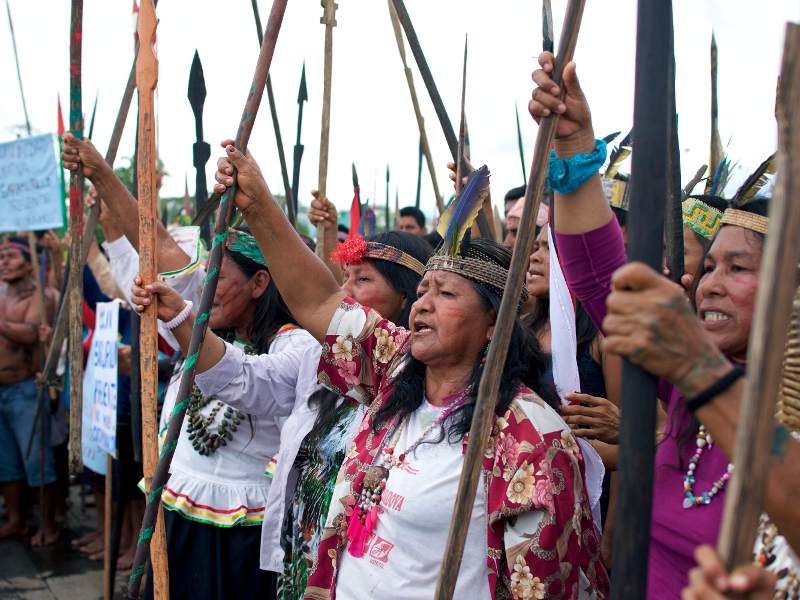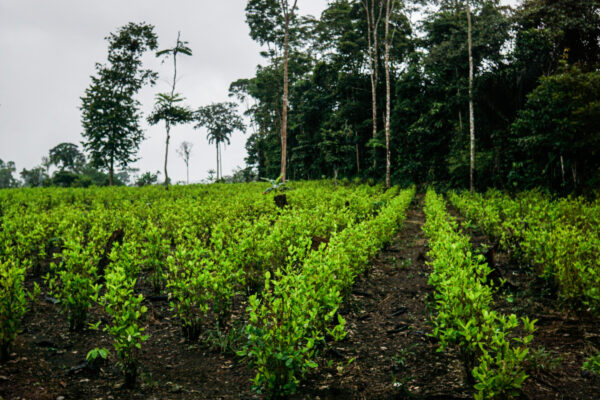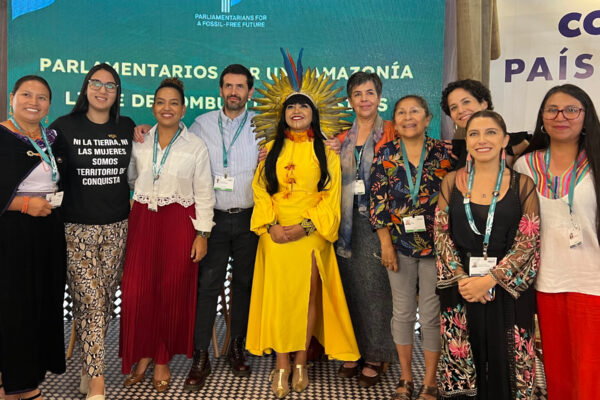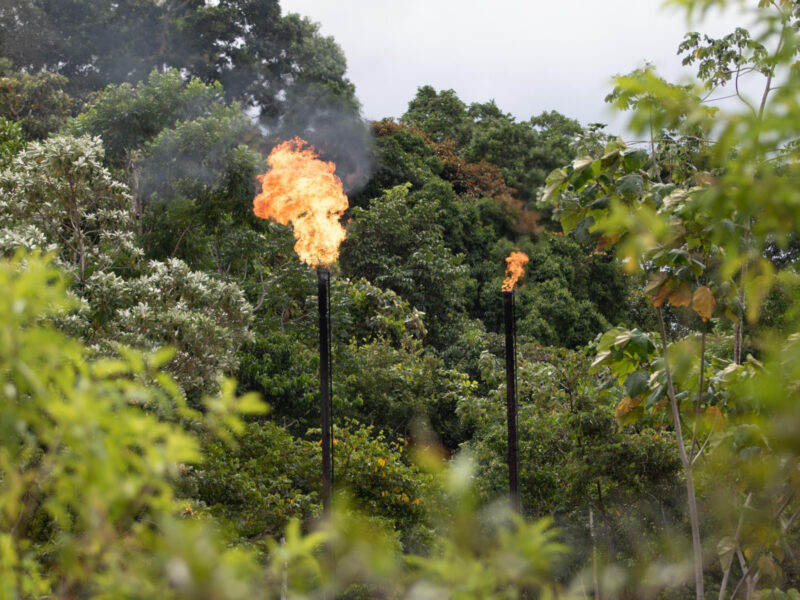Why are so many indigenous peoples protesting oil pipelines? One big reason: to prevent the spills that invariably occur with pipelines and end up contaminating water sources and their territories. From the North to the South, indigenous peoples across the Americas are mobilized in mass actions to denounce pollution from existing pipelines or to stop new pipeline construction. You’ve heard of the fierce indigenous-led campaign to stop the Dakota Access Pipeline in its tracks. That struggle has inspired a global outcry of solidarity with the Standing Rock Sioux and hundreds of other indigenous tribes that are standing with them.
Mostly invisible to date, however, another mobilization is currently gathering steam in the Peruvian Amazon, site of dozens of devastating oil spills in recent years. For over 50 days, a growing coalition of community members from the Kukama, Urarina, Achuar, Kichwa, and Quechua indigenous peoples have been camped at a place that is both strategic and symbolic: the start of the aging Northern Peruvian Pipeline. They are demanding justice and the respect of their rights after 45 years of oil exploitation on their land. “It gives us strength to know that our brothers in the North are also defending their territories, the water and life itself against the extractive industries,” declared Kukama leader and President of AIDECOS Miguel Manihuari Tamani. Now is the moment for us to help raise the global profile of this crucial struggle and and for us all to stand in active solidarity with these Amazonian indigenous water defenders.
Saramurillo – The latest outrage sparks a movement
The Northern Peruvian Amazon has been the site of 45 years of devastating oil activities in the areas referred to as oil blocks 192 (former 1AB) and 8, affecting whole ecosystems and thousands of indigenous community members in at least four river basins, all tributaries to the Amazon. Over the past years, the indigenous people of the Corrientes, Tigre, Pastaza and Marañon Rivers have demanded social and environmental justice, yet companies such as Pluspetrol have continued to both operate and abandon operations with no regard for consultation with communities nor environmental and social impacts.
In 2013 and 2014, the Peruvian government declared the four river basins “environmental emergency zones,” leading to the installation of provisional drinking water systems in 65 communities. However, no fundamental changes occurred. After years of tense and unsatisfying dialogues and nine officially-registered oil spills this year alone, a broad coalition of indigenous peoples decided to take concrete direct action in the town of Saramurillo along the Marañon River. The spark was a spill in late August in the community of Nueva Alianza, soon followed by others in Monterrico and 6 de Julio since the action began on September 1st.
Since September 1st, the action has grown. But rather than engage in constructive dialogue, the Peruvian government sent negotiators who were either unqualified or otherwise powerless to respond to the communities’ demands, which include replacing the corroded pipeline, cleaning up oil contamination, compensating contaminated communities, a truth commission, and not criminalizing the protesters, among others.
Partial victories, total impunity
The communities know to be skeptical of government overtures, since this current action is one in a long line of indigenous and popular mobilizations carried out in the northern Peruvian Amazon over the last decade. Exactly ten years ago, Achuar communities stopped oil production in Block 1AB, Peru’s historically most-prolific oil production site. Through collective action and dialogue, they achieved the Dorissa agreement, which forced Pluspetrol to re-inject toxic waste water as opposed to just dumping it into the rivers, as had been their standard practice for decades. Further protests in 2008 forced better implementation of the agreement. And 2012 saw urban protests in Iquitos against oil drilling in the headwaters of the Nanay River, which provides the city with its drinking water, forcing ConocoPhillips to declare their departure from the region.
Justice now
Walking around Saramurillo, the stories you hear are of sadness and anger. A female Kukama leader tells of the ongoing and immeasurable harm that oil exploitation has brought into their territories. Others speak of illnesses and deaths in their families as a result of contamination. They tell of their grief upon seeing the destruction of their land, water sources, and animals such as fish, and of the impacts on their cultures and dignity. They talk of their exhaustion after the countless attempts they have made to dialogue and sign agreements with the government, which rarely result in more than broken promises.
With the arrival of the rainy season in the Peruvian Amazon, the affected communities’ worries continue to grow. They know well that the government must take immediate action to clean up the spills in order to prevent the disaster from spiraling out of control. Heavy rains will rapidly spread and disperse the spilled oil, contaminating the soil, plants, and rivers further afield. Given these devastating impacts for the communities, the reports and accusations that indigenous peoples cut and vandalize the pipeline themselves are preposterous, and the Apus gathered at Saramurillo say they represent an effort to discredit their just demands.
All that really matters: Unite and organize
Despite all of this, the protestors maintain hope for a better future and the determination to fight on prevail. “If there is no solution, the fight continues!” is the rallying call of the communities standing together, chanted to the rhythm of their spears pounding on the ground in unison. Against all the odds, and despite years of broken promises, the communities know that only one strategy will work to force the government to take action: unite and organize!
The protest at Saramurillo is an extraordinary expression of this, with over 50 communities present and more and more arriving each day. Their latest tactic for pushing for action on their demands is the use of Petroperu barges to block transportation on the Marañón River. As a recent statement from the Apus said, “We are more organized than ever and it is our right.”
Join us in supporting the communities mobilizing today to assure real and thorough response to their demands! Help #EndPeruOilSpills today!
Sarah Kerremans is Director and Sophie Pinchetti is Communications Coordinator at the Chaikuni Institute; Andrew Miller is Advocacy Director of Amazon Watch.













